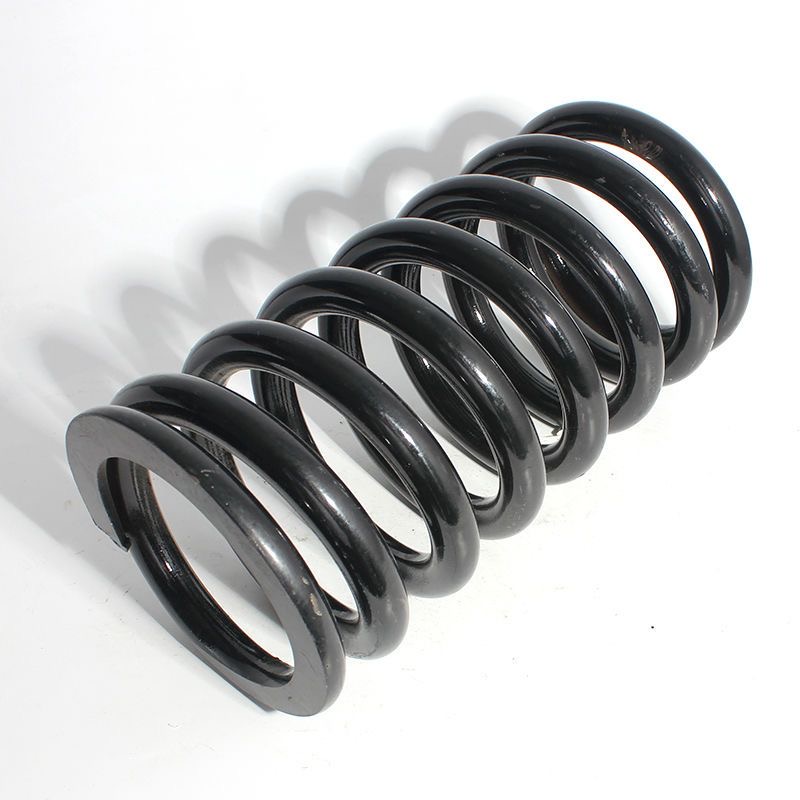Springs represent major considerations in the case of turbines work as big machines. Turbines are massive machines that generate electricity, and we consume electricity on a daily basis in our homes and schools. These springs are intended to function in an accomplishing surrounding (i. e. under high temperature and pressure) that is why it is crucial for us to manufacture such device which consists suitable type of springs able bodied and strong enough by appreciable qualified mechanical designing practices. On this page we will look more at explaining how in real springs are created for turbines and why they have a sense of use now.
How Turbines Work?
Turbines by O. B. T are in front of fans, and the fan is forced by blowing air to spin very fast. Thus it generates power by rotating at a fast speed. The rotating motion is how we get power but also where the turbine gets a lot of force The Next Generation 452 Power relative to RPM. Basically these springs inside the turbine must be high, or it will damage. And there would no longer be electricity for us as the turbine blade shut off. Therefore, they must have to be made for tolerating these high forces and pressures.
Making Strong Springs
The specific materials that we use to make these potent springs (which flex beastly muscle just a little bit also) - Springs are generally of metal, but withstanding heat and pressure in turbines calls for some real tough high strength-to-weight ratio kinds. They obtain an advantage from those metal composition, we have developed special kinds of metallic mixes which are referred to as super alloys. Point 3 Impact Different thing altogether but in an entirely different category and not to mention, Super alloys that can handle a temperature of up to W1200iC + extreme pressures - Up to 2000psi. They can also be extracted and put in turbines operating at such extreme temperatures.
Also, for super alloys to work as springs they must be properly engineered. What form and size do they should take (need to design carefully in this) Given that the design can affect how your spring is going to work under a load, this part of it deserves some attention. Secondly each spring would have to be individually tested and qualified every year so that it can take the huge forces and pressures a Turbine Accessories typically sees. That's what stress testing is for, it allows us to see how the springs are working as they need to safely perform.
New Ideas for Spring Design
New techniques of designing springs for turbines have always been explored by engineers in quest to achieve higher efficiency. One of the coolest is around a material called 'shape memory alloys'. Thus, they can "remember" their original form and that is why these alloys are known as shape memory materials. So in simpler terms, it is flexible enough to deform during heat and return back into its original shape once the temperatures are brought down. Modification of this skill can outlast a spring in second stage turbine blade procedures, and also encourage the coil to operate properly.
A neat solution could be found in the use of composite materials. Composites are categorized as structural materials that consist of two or more distinct phases and do not dissolve into one another. These, meanwhile can be combined with various other components to produce springs that are both stronger and lighter. Composite springs are better suited to tough conditions than traditional springs and could be perfect for use at O.B.T.
Making Turbines Work Better
The turbine can only deliver optimal performance when the springs are designed and produced as per requirements. This in turn translates to the turbine producing more electricity from less energy. This system is designed to be as the least expensive electricity source on earth, and proper spring design plays a critical role in that. It is cheaper for all of us to make our own electricity than to have the system leak so much.
Challenges in Spring Design
It seems that making springs suitable for use inside turbines subjected to torrid conditions is no mean task. Unfortunately the harsh conditions can also wear out springs. This causes the springs to wear out so that they have to be changed more often, which comes with a very high price both in time and also for money. Many times, turbine replacements lead to more maintenance and costly downtime.
The severe conditions could also lead to springs break. A broken spring can render the entire turbine to shut needing an expensive repair and power production lost. Through this, engineers continue to increase the stiffness of springs. All they have is a spring with stronger walls but does not need to be operated faster or anything, it just will hold more for longer tracks/tougher conditions so the turbines continue running.
 EN
EN
 AR
AR
 BG
BG
 HR
HR
 CS
CS
 DA
DA
 NL
NL
 FI
FI
 FR
FR
 DE
DE
 EL
EL
 HI
HI
 IT
IT
 JA
JA
 KO
KO
 NO
NO
 PL
PL
 PT
PT
 RO
RO
 RU
RU
 ES
ES
 SV
SV
 TL
TL
 IW
IW
 LV
LV
 LT
LT
 SR
SR
 SK
SK
 SL
SL
 UK
UK
 VI
VI
 ET
ET
 HU
HU
 TH
TH
 TR
TR
 AF
AF
 MS
MS
 GA
GA
 IS
IS

